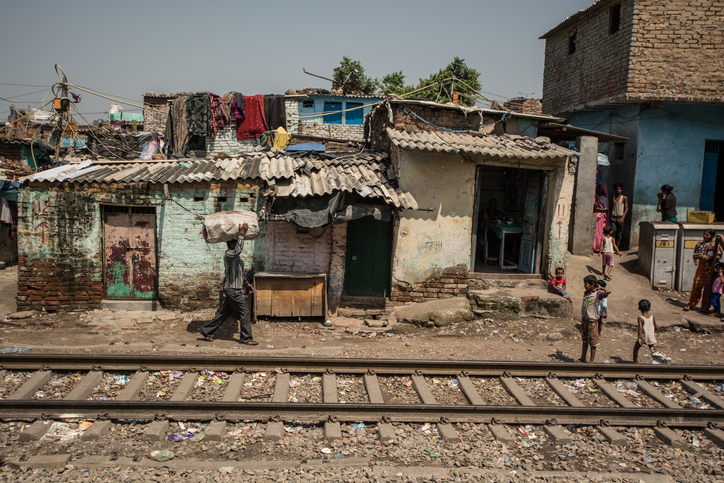shanty
(noun, adjective)
/ˈʃænti/
 LISTEN
LISTEN


A shanty is a poorly built house or hut and the adjective shanty refers to anything that’s roughly built. More broadly, in US English, it refers to a low economic or social class, but this meaning is pejorative and now dated. Unrelatedly, a shanty is a type of song that sailors used to sing while they worked.
Example sentences
- A huddle of shanties stood on the edge of the town.
- Economic growth in the area means that shanty towns are springing up as people migrate to find work.
- The rich old lady sneered at the poor family, calling them "shanty people."
- The sailors were singing shanties as they mended the ship's rigging.
Words often used with shanty
sea shanty: another term for shanty as a song sung by sailors. Example: “This old music book contains several sea shanties.”
In pop culture
Although sailors no longer sing shanties as they work, sea shanties are an important part of the heritage of traditionally seafaring areas and there are many groups who still keep these songs alive today. In this video clip you can see one such group, the Sheringham Shantymen, singing the popular shanty “Blow the Man Down.”
Additional information
In Australia and New Zealand, a shanty is a public house (better known as a pub), particularly one that isn’t legally licensed.
Did you know?
Although the terms shanty town and slum both refer to areas with poor and substandard housing, a shanty town is one made up of hastily constructed, makeshift (that means something that will do the job, but perhaps not very well or for very long) dwellings, whereas a slum is an area that may have buildings that were once good, but are now deteriorating.
Origin
Shanty, meaning a poorly built house, dates back to the early 18th century, and probably originated in Canada, from the Canadian French noun chantier, which was the name given to a lumber camp (where workers cutting down trees for lumber lived temporarily) and, by extension, a wooden hut or cabin. In turn, chantier comes from the Old French chantier (gantry, yard or depot), and can be traced back to the Latin cant(h)ērus, which meant a ‘rafter or prop,’ but also ‘a horse in poor condition.’ It may even be related to the Greek kanthé̄lios (pack ass). The other meaning of shanty, the type of song, also comes from the French. It dates back to the mid-19th century, and is an alternate spelling of chanty or chantey, an alteration of chantez, the imperative form of the French verb chanter (to sing). It is, of course, related to the English noun and verb chant.
Word of the Day is released Monday through Friday.



